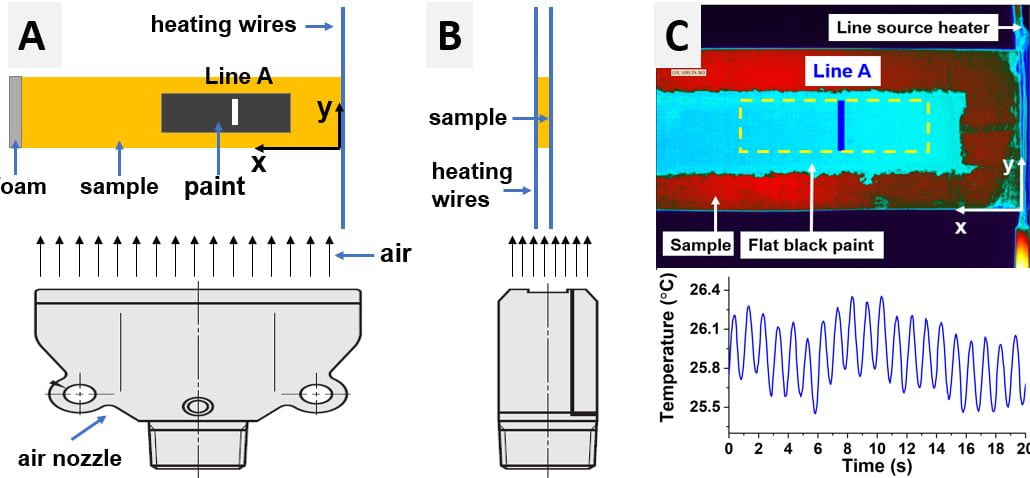Accurate Thermal Diffusivity Measurements Using a Modified Ångström’s Method With Bayesian Statistics
Post date: October 4, 2020
Student: Yuan Hu
Faculty: Timothy S. Fisher
Sponsor: Center for Integrated Thermal Management of Aerospace Vehicles
Summary: This work reports a custom instrument that employs a modified Ångström’s method to measure the thermal diffusivity of foil-like materials in which heat propagates in one dimension. This method does not require a semi-infinite medium assumption as compared to the original Ångström’s method, which also has been typically performed in vacuum. However, in this work, temperature measurements are performed in laboratory ambient conditions, which are more convenient for most experiments. To quantify and reduce uncertainties due to temperature fluctuations in noisy ambient conditions, a Bayesian framework and Metropolis algorithm are employed to solve the inverse heat transfer problem and to obtain a probability distribution function for thermal diffusivity. To demonstrate the effectiveness of the custom instrument, the thermal diffusivity of a copper 110 foil (25.0 mm long, 7.0 mm wide, and 76.2 μm thick) was measured in ambient conditions, and the results match well with previous studies performed in vacuum conditions on much longer samples.
(A) Front view of the sample with heating wires, insulated tip and an air nozzle below the sample. (B) Side view of the setup. (C) Infrared image of the sample and an oscillatory temperature profile on a representative isotherm (line A). (Rightmost) The PPDFs for thermal diffusivity for different number of amplitude and phase measurements.
Reference:
Hu, Yuan, and Timothy S. Fisher. “Accurate Thermal Diffusivity Measurements Using a Modified Ångström’s Method With Bayesian Statistics.” Journal of Heat Transfer 142.7 (2020).

